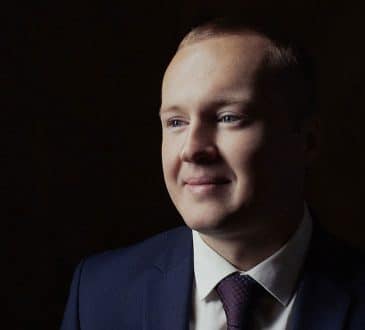How Do We Treat Employees?

It’s been 18 years since I changed my arena of combat from the internet industry to the hospitality industry. It was exhausting but the results were not bad: although we were late starters, we overtook our peers in almost every aspect to slowly become the top hotel brand in China. And having founded several businesses, I am often asked by new entrepreneurs to share my experiences. What traits do hoteliers and leaders have? Summing up over a decade of observations, I think the most important trait is dedication to the job.
The majority of our senior staff, especially the key members in the regional offices, all joined the company in the early days and have grown together with the company. They worked their way up from entry level, earnestly, conscientiously, steadfastly and assiduously; they are quick learners, good at thinking through problems and sum up successful experience as well as absorb the lessons of failures; they are tenacious when confronting setbacks and challenges.
The atmosphere in our company is fast-paced and intense, and the pressure is enormous. The people that can’t keep up and are eliminated; some people can’t cope and give up. Nonetheless, the people who persevere all succeed!
Ordinary people who work hard, learn continually, and are tempered by fierce struggles can become a store manager, or a city manager, or a branch manager, or even a regional CEO. Basic level staff have three fundamental expectations:
- Competitive salaries.
- Stable work.
- A relaxed and happy work environment.
We have tens of thousands of employees, we cater to in excess of 100 million hotel guests annually, and every customer interaction, every breakfast and every room cleaning is undertaken by grassroot employees. Their level of professionalism and dedication determines our service standard.
We regard our employees as family
A hotel or a department is just like a small family, members are united and mutually supportive. That is because the benefits are not fought over; benefits are the result of working hard together. The most successful hotels are the ones in which the employees are united and of one mind. In addition to providing a relaxed and happy work ambience, we do our best to give our employees a sense of security. We have a Huazhu fund to help families who are in difficulties. If an immediate family member loses the ability to work, we provide financial assistance for their children to attend school, and other measures to make employees feel at ease.
Huazhu is a large family
We are a group of industrious and dedicated people who work very hard at their jobs. We have achieved outstanding results for which we receive ample remuneration. In times of difficulty, we are much more inclined to help each other pass through crises. Additionally, senior company officers and basic staff are identical in their need to support their families, so their primary need is a generous salary. But they have even more expectations for career advancement and education. High level staff want to have a sense of belonging, and have a say inside the company, and be trusted and be valued.
We must nurture outstanding leaders, not mere implementers, much less so-called professional managers – the sort of high level employee who only pays attention to performance targets, duties and bonuses. We need innovators, leaders and managers with a ‘master of the house’ spirit. The income of management staff is connected to an enterprise’s efficiency and scale of operations.
Grass-root level staff receive a stable income through lean management of the hotel; mid-level staff manage the scale of operations to increase their income; at the highest level, increasing the scale of the entire operation and raising efficiency is their path to increased income. Key words for mid-level managers are: compassion, loyalty, propriety, wisdom and integrity. Mid-level managers emphasize thinking about tactics: How do we run this hotel? How do we manage our teams? How do we defeat our competitors? We need a large number of mid-level managers who can ‘unify knowledge and action.’
There is little difference between shares and cash in our remuneration packages, but at the higher levels the proportion of options is higher and, if the company grows, the individual’s share value grows; when the company does well, their share will increase in value.
We require ‘red’ and ‘expert’
Our requirements for staff are simple; just two words, ‘red’ and ‘expert’. Red covers four aspects: loyal to the company, responsible, devoted, and deeply love the company. Expert also has four aspects: efficient, team leadership, able to learn, and innovative.
When we are choosing candidates, we must discard people whose abilities are deficient or who have incompatible values. People are usually motivated in two ways: rewards and fear. When you do well, society, parents, teachers and companies provide a variety of benefits, such as commendations, affirmation, awards, promotions and money. This is what reward means, encouraging the determination of someone to continue to do more of what an organization or a society wants, to do more good deeds, and encourage others to do the same.
All kinds of fear have the same effect of compelling people to do the job well. I advocate that companies should use both rewards and punishments. Our company offers many rewards such as cash, stock, options, promotions, training and honors. What sort of things should be punished? First of all, nonfeasance, or merely punching the time clock as a token member of the team. Some managers know of a problem but don’t try to solve it because that would entail trouble and conflict.
Next come people who don’t make an effort, are incompetent or immoral. If people like this occupy a position they don’t deserve, the company will become muddled, feeble, lack a sense of honor and lose its vital force.
However, we must be lenient towards mistakes or failures resulting from innovation. Otherwise, no one will dare to do anything. Trying to do something, but not doing it well is making a mistake. We should be tolerant when people make a mistake in the course of doing their work and help them so they can learn lessons from the mistake. Innovation revolves around trying things out, experimentation that can lead to mistakes and result in failure. Failure in the course of innovating is a cost that organizations must bear to be able to achieve breakthroughs.
By treating our staff as family, rewarding them when they succeed and supporting them when they are struggling, we create a workplace where our staff give back the same dedication and commitment that we provide them; ultimately, creating a successful and motivated workforce.
Commentary by Ji Qi. Here’s what you’ve missed?
World’s Best Countries For Education System.
World’s Best Countries For A Child To Be Born In.
World’s Best Countries For Its Citizens To Live.
World’s Best Countries For Cultural Influence.
Bring the best of the CEOWORLD magazine's global journalism to audiences in the United States and around the world. - Add CEOWORLD magazine to your Google News feed.
Follow CEOWORLD magazine headlines on: Google News, LinkedIn, Twitter, and Facebook.
Copyright 2025 The CEOWORLD magazine. All rights reserved. This material (and any extract from it) must not be copied, redistributed or placed on any website, without CEOWORLD magazine' prior written consent. For media queries, please contact: info@ceoworld.biz








